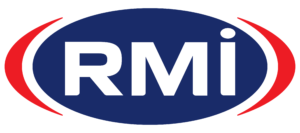 With unemployment levels at all time highs, there are still plenty of opportunities for people with a technical qualification and a positive attitude and an eagerness to use their opportunity, and their skill set and discipline.
With unemployment levels at all time highs, there are still plenty of opportunities for people with a technical qualification and a positive attitude and an eagerness to use their opportunity, and their skill set and discipline.
This is particularly true in the motoring sector. As South Africa celebrates National Disability Rights Awareness Month annually between 3 November and 3 December, the important thing to remember is that disability is definitely not an obstacle in the sector.
“There may be a perception that the motor industry requires mostly able-bodied people because of the manual labour required, however, there are exceptional people living with disabilities steering themselves up the career ladder, and inspiring others to do the same,” says Louis van Huyssteen, Training Director at the Retail Motoring Industry Organisation (RMI). Many of these can be found in RMI member workshops throughout the country.
An example of this triumph over adversity is Kyle Louw, a paraplegic in Bloemfontein. Kyle is a daily reminder that there are incredible opportunities for people living with disabilities to work in the motor industry as mechanics, salespeople, fitters and business owners, or whatever career path they might choose.
“Kyle, who lost the use of his legs after an accident at age 13, had always been interested in fixing cars and was at his dad Clive’s workshop every day after school to learn and to help. Clive started his business, Bloemfontein Diesel Tech, in 1995 to service and repair mechanical diesel fuel injection pumps.”
“This later expanded to include common rail pump systems as well as full-service bays. Clive is also the Free State and Northern Cape representative of the Automotive Remanufacturers’ Association (ARA), a proud association of the RMI. Clive passed on his love of the motor industry to Kyle, who, after finishing high school, enrolled in an apprenticeship, passed his trade test, and became fully qualified six years ago.”
Louw said: “It’s important to apply yourself, and put your heart and soul into your work. There are many ways to accommodate your disability so don’t be afraid to apply for your dream job.”
Frik Botha, who runs a very successful training facility for people with hearing disabilities – Industry Training and Consulting (ITC) in Pretoria – concurs. His business specialises in training in the Automotive Body Repair Industry. Botha says he started training disabled people and getting involved with deaf people in 1997 when he left his post as school principal and bought shares in a panel shop in Pretoria. “There is a saying amongst disabled people: “you have to be better to be equal” and we have found our trainees to be exceptional.”
Botha says his eldest brother Ferdie had employed deaf people for several years. “He applied the principle of “learning-by-doing” and has developed his own “sign language – occupationally specific.”
These deaf and hearing-impaired employees worked as general workers, excelling to Body Shop Assistants and eventually performed the tasks stipulated for a Journeyman, by being graded as a B/A Journeyman. When Botha himself got involved in 1997, the brothers decided that they were going to send the three B/A Journeymen for a Trade Test in Olifantsfontein. All three passed and that is when Botha himself got involved with the National Institute for the Deaf in Worcester, as well as the Transoranje School for the Deaf in Pretoria and took in young school learners to prepare them for the trade test.
Since then, ITC has helped 9 deaf people to qualify as panel beaters and since 2016, with funding from the merSETA, has trained 63 deaf people in accredited Skills Programmes, to be employed in panel shops as general workers.
Currently, we have three groups of learners within a “ brand new concept: inclusive training” combining deaf and hearing impaired people with learners from LSEN (learners with special education needs) schools.
“This is how we expand the training for disabled people because it improves their chances to be employed in our Industry helping in a panel shop or a paint shop or working as a mechanic.”
Botha is hoping with the support of merSETA, RMI and SAMBRA to expand the programme even further into rural areas.
Van Huyssteen is positive about growth.
“We are experiencing a chronic skills shortage in our sector ranging from motor body repair and spray painting; petrol mechanics; diesel mechanics; automotive engineering and machining to engine fitting; welding; vehicle bodybuilding, and auto electrical and these are all jobs a person with a disability can do with a lot of hard work,” he says.
“We appreciate many of the candidates need to slowly be prepared in the school-environment, for the “world-of-work”.
They may not be able to cope initially with the apprenticeship standards, and have to go through the “learning- by-doing” training methodology but they will get there. As an organisation RMI welcomes the participation of people living with disabilities into the workforce. We strongly believe in giving opportunities to all,” he concludes.
 ..:: AUTO REPORT AFRICA ::..
..:: AUTO REPORT AFRICA ::..




